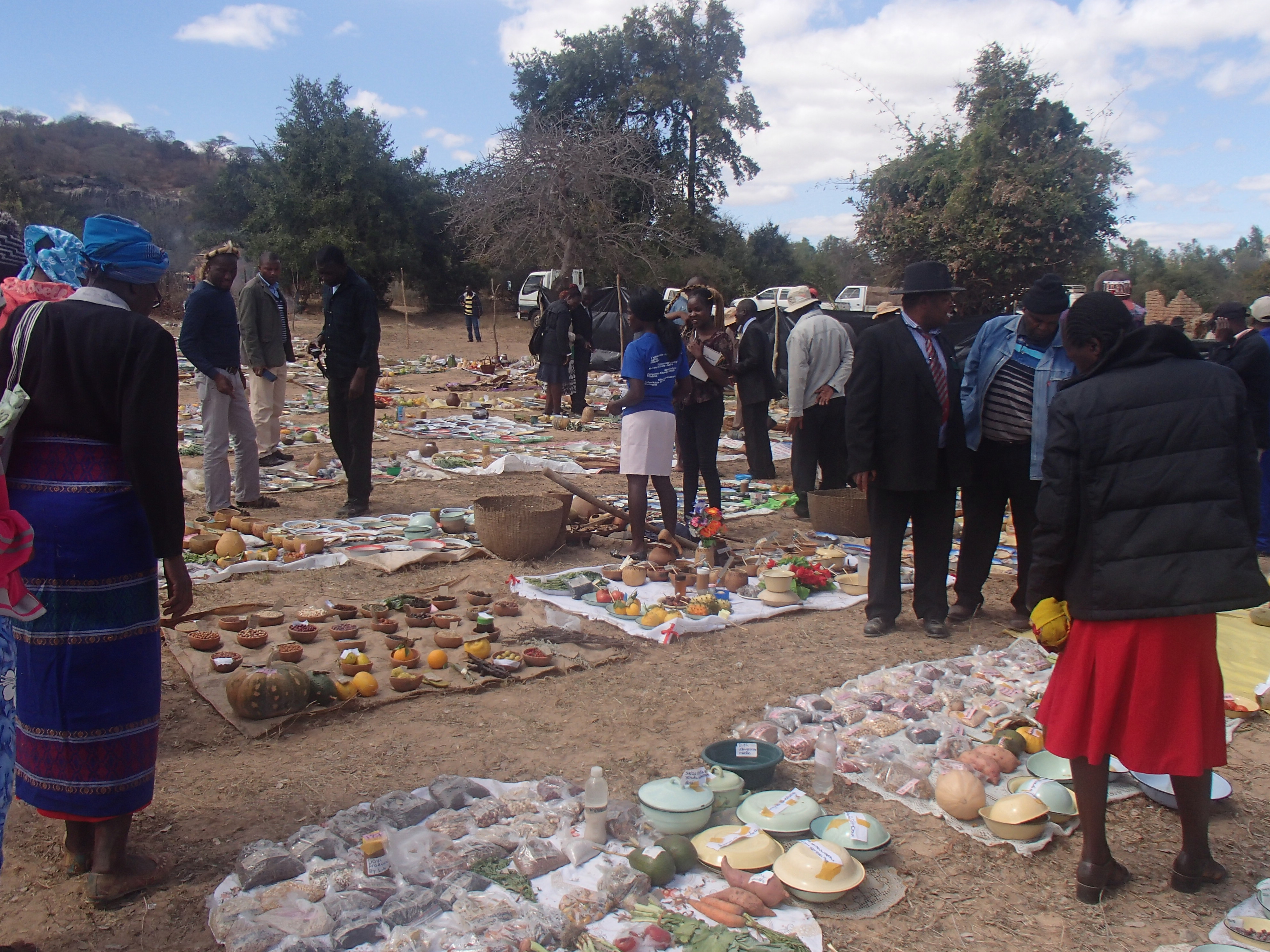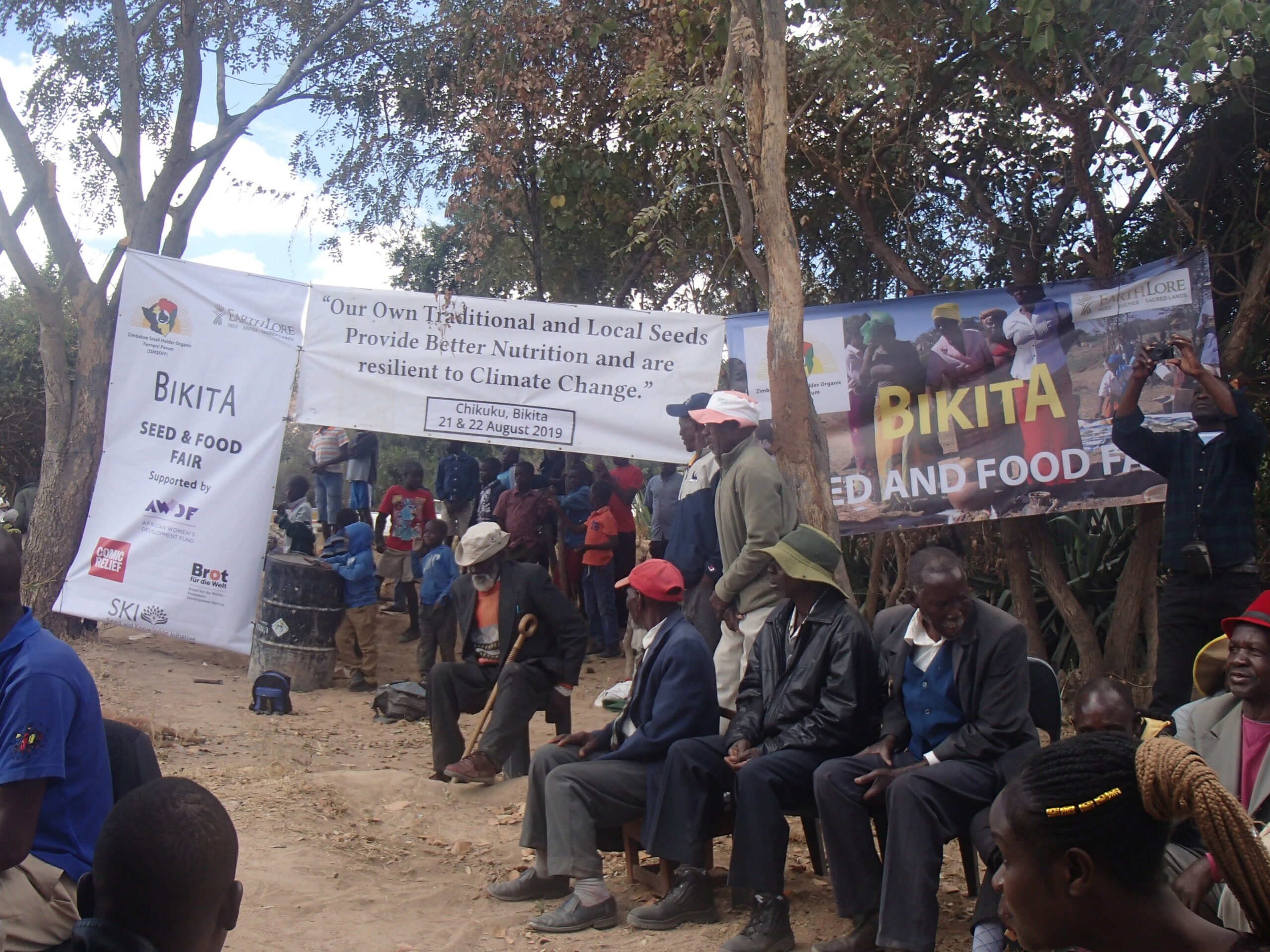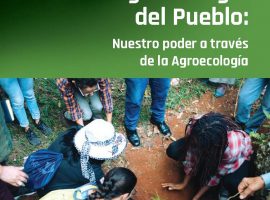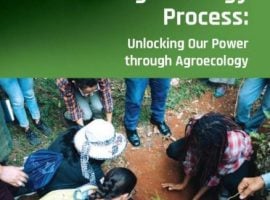by Saulo Araujo & Joao Fonseca
As part of the blog series “Perspectives”, WhyHunger staff interviewed Ndabezinhle Nyoni and Nelson Mudzingwa from the Zimbabwe Smallholder Organic Farmers’ Forum/La Via Campesina. ZIMSOFF is a grassroots organization dedicated to advancing agroecological practices among rural families in Zimbabwe through seed saving, trainings in their Shashe Agroecological School and mass mobilizations around the themes of climate justice and agriculture policies. WhyHunger has been accompanying the work of ZIMSOFF for a few years now since they became the host organization of La Via Campesina International’s Operative Secretary. La Via Campesina International is a global movement representing 200 million rural people in 74 countries and a long-time ally of WhyHunger.
Following the last interview with Kevin Rangel from the Ezequiel Zamora National Peasant Front (Venezuela), we reached out to ZIMSOFF leadership to learn our allies’ take on the political and economic context in Zimbabwe and how its impacting their work.
Q: What is the current economic and political situation for rural families in Zimbabwe?
The current situation is severely affecting people in rural areas. In the last decade, Zimbabwe experienced frequent droughts and the economy was unstable, however it was on a recovery path following the formation of a Unity Government between the Ruling party (ZANU PF) and MD-T, the main opposition party between the years of 2009 and 2013. Following the 2013 harmonized elections that were won resoundingly by ZANU PF, we began to see strategies again to pull down the pillars of the State to cause a regime agenda. The rural areas experienced various challenges including increased food insecurity, which continues to this day. In last March, the rural areas in Manicaland and Masvingo were affected by the Cyclone Idai. The cyclone displaced hundreds of thousands of people, killed hundreds and destroyed crops and livestock of peasants. Currently, food insecurity persists as a result of the major droughts, whose occurrence and frequency are increasing as a result of climate change. Most crops from the 2018/19 agricultural season have been written-off and many rural and urban people are reported as needing urgent food assistance. Such a situation has led to some people selling cash on the streets attracting a percentage markup that is depriving citizens of their cash. However as of late some measures have been put in place to guard such malpractices sabotaging the economy and innocent Zimbabweans.
Beginning in January this year, the economic situation started to deteriorate and worsen at a fast pace following the introduction of stabilization policies by the new government led by President Mnangagwa. The economic reforms starting in 2018 have led to high inflation beginning in 2019 and in February, the masses protested a hike in fuel and food prices. In June, the government abandoned the multi-currency and reinstated the Zimbabwean dollar in an effort to stem out speculation. The cash shortages (crisis) ensued and have affected many rural people who mainly require it for basic needs like health, transport, food and education.
The current government support to rural agricultural sector has not been adequate under the Command Agriculture program, which focuses on maize and wheat, excluding the bulk of crops grown and consumed in the rural areas. The support focuses on a green revolution package including chemical fertilizers, commercial seeds, and more.
Government has yet to provide a path forward for rural families. Food production has always been stable particularly in the rural areas which produce over 70% of food consumed nationally. The rural areas produce over 16 food crops, most of which are not commercially traded and are key to food self-sufficiency. However, in an effort to build food security, the government has been strongly pushing for industrial farming practices through its Command Agriculture program, an input-credit support scheme which focuses on cereal grains, mostly maize and wheat. This support has not been well received by the rural people because of “unsuitability of the input package”. The support program gives corporations control of agriculture and allows them to exploit smallholder farmers through low output prices, high input prices and engaging exploitative contract schemes.
However, the rural farmers/peasants (such as the members of ZIMSOFF and others) are pushing for policies to recognize and protect peasant saved/traditional/indigenous seeds. These efforts birthed the Zimbabwe Seed Sovereignty Programme. A lot of effort is being made to create wider awareness on the benefits of traditional food and seeds among the general population including national festivals to celebrate traditional and organic foods and seeds organized every year for the last 3-5 years. The need to farm using Agroecology to cool the Earth and to do away with destructive industrial farming methods and green revolution technologies has gained much traction following the increased concerns linked to global warming and climate change.
Q: We heard about threats against the land reform process in Zimbabwe. Are there in fact any government decisions around that?
A: Some of the mainstream news channels are distorting what is obtained on the ground with regard to land reform process. The government is currently auditing the land parcel redistributed during the Fast Track Land Redistribution Programme (FTLRP) between 2002 and 2008. Zimbabwe has been carrying out small audits for the last 10 years in an attempt to assess land use, multiple land ownership, farm size, tenure security and many other related land issues. Following these audits, a few farms (A2, commercial oriented, farms whose tenure was tied to productivity) were repossessed and reallocated to new beneficiaries for various reasons. The ownership of A2 farms is always tied to productivity – some of these landowners were subletting land and some land was not being utilized. Some cases were linked to absentee land beneficiaries and the land was occupied by either a relative of the beneficiaries, tenants and/or being used by farm laborers. Some cases of dispossessed farms were linked to intra-ZANU Party fights which increased and were more visible the last 15 years. Such ZANU PF factionalism is manifesting in the land issue – some politicians (who belonged to G40 or Mujuru factions) who owned multiple farms are losing their land – meaning its being redistributed to benefit a variety of beneficiaries. Some of these farms, though only a few, were being used for patronage by some former politicians – meaning that they allowed “their” landless and non-landless supporters to occupy and use such land so that the farm does not lie idle and to provide cheap labor to the politicians whenever the need arose. So we have a situation whereby these caretaker families are caught in the factional battles and are evicted as they are not legal beneficiaries of the land. In general, the affected land parcels are few. This is not to say there are no threats to land reform especially considering the current government’s investment mantra: “Zimbabwe is open for business”. In conclusion, the land reform is irreversible.
Q: What is your message to people in the U.S. and Europe about the situation in Zimbabwe.
The sanctions by the West that were extended following electoral outcome of the harmonized elections of 2018; their contest by the main opposition and street protests/demonstrations, continue to negatively impact the economic and social welfare of the rural people, as the quality of education, and health and essentially many other services supposed to be provided by the government has have declined substantially. The measures are not targeted but amounts to a broader regime of sanctions that affected not only particular individuals in the ruling party but the economy and the Zimbabwean populace more generally. Hence not only that, but the physical infrastructure has not been spared too, making it difficult to connect rural and urban economic relations. The country has been plagued by fuel shortages crippling critical socio-economic and political functioning. In fact, this is a clear warning by the West aimed at instilling fear to other African states, those that may think to follow the Zimbabwe route on Land Reform. The agenda obviously being to keep on putting pressure on the Zimbabwean government for a regime agenda. It has become a clear fact to all ordinary citizens that the sanctions on Zimbabwe are not targeted to individuals but to the economy and stability of the country.
The situation in Zimbabwe is very similar to Venezuela and Cuba. The senseless sanctions are affecting those already affected by the current policies. We call upon the people in US and Europe that they should support the push for the removal of these sanctions which harm the ordinary Zimbabweans more than the political elite. Again, these sanctions are making it difficult to achieve development and democracy, whose institutions are in a critical state making it difficult to reform or to revamp them.









